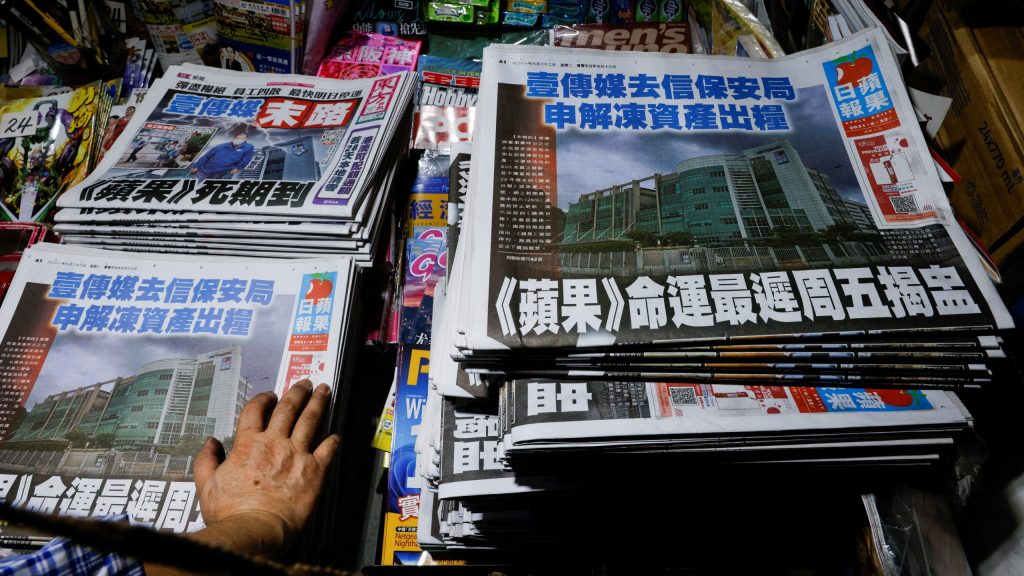Hong Kong's pro-democracy newspaper Apple Daily will print its final edition "no later than Saturday," bosses confirmed June 23, after police froze accounts and arrested staff using a new national security law.
Apple Daily has shown support for the city's pro-democracy movement and has criticized China's authoritarian leaders. Ucanews.com, citing an Agence France-Presse article, reports Chinese authorities have made no secret of their desire to see the newspaper silenced and have used a sweeping new national security law to bring about its demise.
Apple Daily's Catholic owner, Jimmy Lai, is in jail and was among the first to be charged under the law after its imposition last year.
Since mid-June, Hong Kong authorities used the security law to raid the paper's newsroom, arrest six staff members and freeze assets. The last move left the paper unable to pay staff or vendors, AFP reported.
On June 23, the board members of Apple Daily's parent company Next Digital confirmed the newspaper would publish its last edition "no later than Saturday" while its website would go offline at 11.59 p.m. that day.
Ellen Bork, president of the Committee for Freedom in Hong Kong, a U.S.-based nonprofit, reacted to news of the paper's closure, saying, "The world should be in no doubt that the destruction of Apple Daily and the broader assault on Hong Kong's people is part and parcel of the anti-democratic agenda China's Communist Party is pursuing internationally."
A tweet from Apple Daily's English feed announced June 22: "Dear readers This concludes the updates from Apple Daily English. Thank you for your support."
China imposed a security law on Hong Kong last year to stamp out dissent after the city was convulsed by huge and often violent democracy protests.
Hong Kong has faced increasing pressure since China implemented a new security law that bans subversive and secessionist actions in the former British colony. Last July, Zheng Yanxiong, a senior Chinese politician who crushed a mainland democracy movement, was appointed to oversee its implementation.
When Britain handed back Hong Kong to China in 1997, certain democratic rights were guaranteed for at least 50 years under the "one country, two systems" agreement. However, the imposition of the security law practically brings Hong Kong under full Chinese administration and indirectly ends the agreement that allowed Hong Kong's semi-autonomous status.

